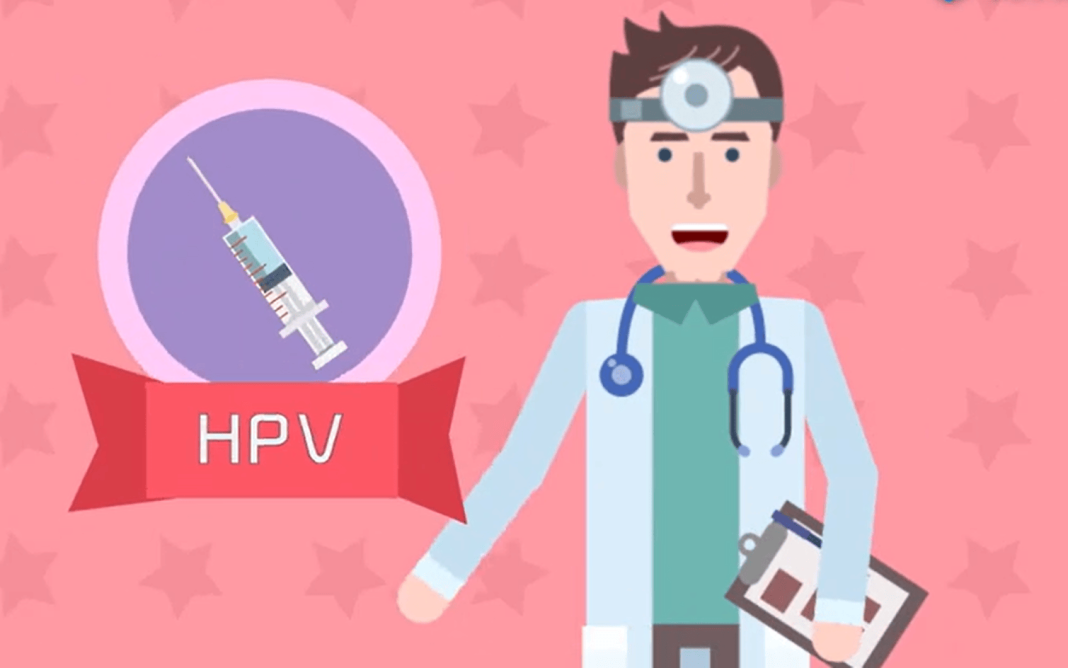▲ Reference image: The medical community has historically lagged behind in the development of the HPV vaccine for men. Photo / Screenshot from the video report by the Beijing News.
According to Health Times, the Guangxi Zhuang Autonomous Region’s Disease Prevention and Control Center will launch a phase three clinical trial for an HPV vaccine for men in September. The trial will involve a domestically produced nine-valent vaccine and will follow up with 500 participants over six years. Many internet users are looking forward to the possibility of men receiving the HPV vaccine domestically.
On August 25, several clinical experts stated in interviews with the People’s Daily Health Client that from the perspectives of herd immunity and disease prevention, it is necessary for men to receive the HPV vaccine. Once indications are validated domestically, the vaccination for men will undoubtedly be made available.
Since the HPV vaccine primarily prevents cervical cancer, which is often considered a “female-exclusive disease,” the vaccine has long been viewed as one intended solely for women. The emergence of information regarding a phase three clinical trial for an HPV vaccine for men not only feels fresh but has also sparked discussions about its necessity, drawing significant public attention.
In addition to the one-sided views on HPV and the HPV vaccine in society, there has historically been a lack of understanding regarding this type of vaccine. Coupled with varying local circumstances, this has led to some biased phenomena in the development and promotion of such vaccines. Particularly, the research and development of the HPV vaccine for men has lagged behind, with currently available HPV vaccines only suitable for women, further reinforcing the perception that HPV vaccines are “female-exclusive.”
However, from the perspective of cancer prevention, the HPV vaccine should be used by both genders. The role of the HPV vaccine is to reduce the chances of HPV infection and significantly lower the incidence of cancers caused by this virus. According to data published in an international cancer journal in 2017, the HPV virus is associated with various human cancers, with about 87% of all HPV-related cancers occurring in women and the remaining 13% in men.
In fact, regions such as the United States, the United Kingdom, Australia, Japan, and Hong Kong and Macau in China have already enabled men to receive the nine-valent HPV vaccine. Therefore, the shortcomings in this regard need urgent addressing.
HPV infections can lead to not only cervical cancer but also diseases like genital warts. Many of these diseases can affect both genders, and some diseases have higher incidence rates in men. For example, issues like reduced sperm motility are exclusive to men. From this perspective, it is entirely necessary for men to receive the HPV vaccine.
Moreover, even if the aim is to prevent cervical cancer, it should be emphasized that both genders share responsibility. Cervical cancer is caused by the HPV virus, which primarily spreads through sexual contact and is one of the most common pathogens for sexually transmitted diseases.
While vaccination against HPV can indeed reduce the chance of women getting infected, it cannot prevent male partners from transmitting the virus to women through sexual contact. Therefore, addressing sexually transmitted diseases requires a joint effort from both genders; focusing solely on the responsibilities of women while neglecting those of men is evidently detrimental to preventing related diseases. Allowing men to receive the HPV vaccine will benefit both genders in effectively tackling the challenges posed by these diseases.
Many believe that since both women and men can be infected with the HPV virus, the current HPV vaccines on the market should also be applicable to men. If so, this could lead to significant savings in research and development costs. However, medicine is an empirical science, and there are gender differences regarding immune response, tolerance, and vaccine side effects. Therefore, the HPV vaccine intended for men should undergo clinical trials specifically for males.
Currently, there remains substantial room for exploration in developing an HPV vaccine for men. To achieve the ultimate goal of completely eliminating cervical cancer, many regions in our country are actively promoting free HPV vaccinations for eligible women. Some have suggested that similar free HPV vaccination programs should also be widely implemented for eligible men.
Today


